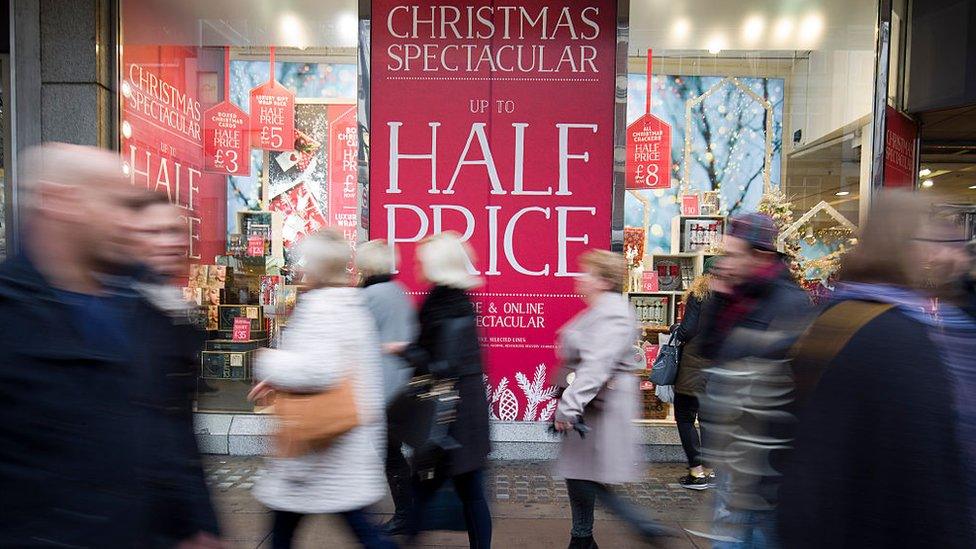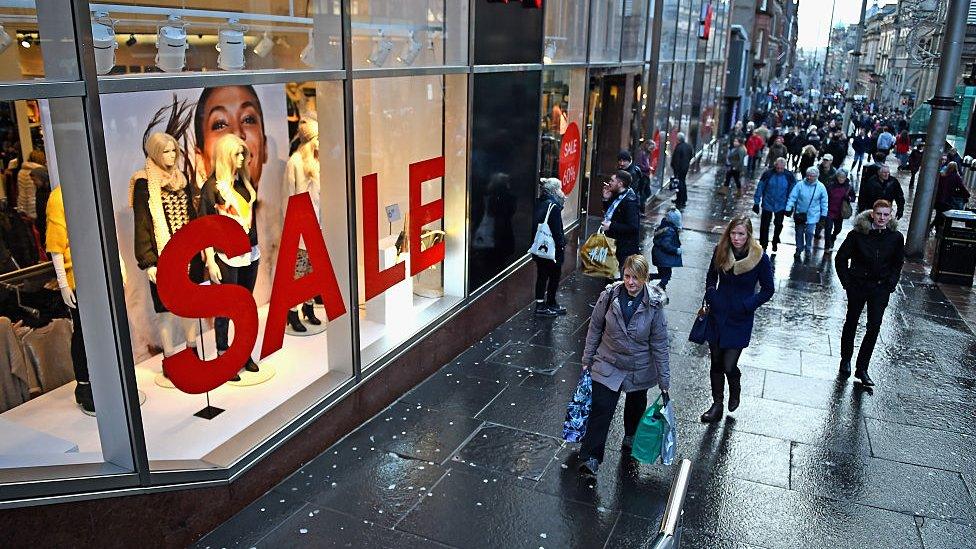Scots retailers suffer 'bleak midwinter' for sales
- Published
- comments

Scotland's high streets experienced a "bleak midwinter" in December as festive shoppers failed to boost sales significantly, according to a survey.
The SRC-KPMG retail sales monitor found total sales rose by 0.4%, compared with the same month in 2018.
But the figures were skewed by Black Friday, which was included in December figures for 2019 as opposed to November the previous year.
Looking at the two months combined, sales were down year-on-year by 0.9%.
When adjusted for deflation, the real-term decline for November and December was 0.5%.
Scottish Retail Consortium (SRC) director David Lonsdale said Christmas food sales were positive, with consumers able to take advantage of a vegetable price war as grocers cut the price of traditional staples such as Brussels sprouts and parsnips.
Gins and soft drinks also sold well over the period.
Non-food sales were mixed, with kitchen appliances, Bluetooth devices and beauty ranges performing reasonably well, while clothing and footwear struggled.

SRC director David Lonsdale said shop takings slipped during the critical Christmas trading period
Mr Lonsdale said: "It was more bleak midwinter than festive frolics for Scottish retailers as shop takings slipped during the critical Christmas trading period."
On a positive note, online-adjusted sales nudged up by 0.3% across the year, outperforming the UK's decline of 0.1%.
KPMG head of retail Paul Martin, said: "The latest figures reflect the overwhelming challenges facing Scotland's high streets.
"2019 was dominated by the loss of a series of high-profile retail names and it appears the usual pre-Christmas rush has failed to significantly turn around fortunes."
He added: "With greater clarity over Brexit and a slight rise in overall business optimism, we could see consumer confidence return.
"But retailers are facing significant challenges, driven by a huge range of factors - from a reduction in traditional demand towards new channels, increased costs and continued economic uncertainty."
- Published9 January 2020

- Published7 January 2020
